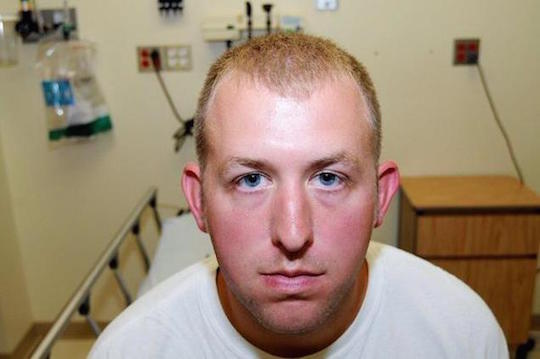As details emerge from the grand jury investigation into Darren Wilson’s fatal shooting of unarmed black teenager Michael Brown, commentators are crying foul. The New York Times editorial board issued a scathing indictment of the decision not to indict, saying that prosecutor Robert McCulloch—“widely viewed in the minority community as being in the pockets of the police”—handled the proceedings “in the worst possible way.” The National Bar Association issued a press release “questioning how the grand jury, considering the evidence before them, could reach the conclusion that Darren Wilson should not be indicted” and called for federal charges. Meanwhile, at Vox, Ezra Klein has called Wilson’s account of the shooting “literally unbelievable.”
One thing everyone agrees on is that Brown stole cigarillos from a nearby convenience store minutes before he encountered Officer Wilson. Wilson claims that when he pulled up alongside Brown and told him to move out of the street and onto the sidewalk, Brown told him to fuck himself and pushed the officer back inside his car. While the two men were struggling through the window of the police cruiser, Brown stopped fighting to hand the stolen cigarillos to his friend, Dorian Johnson. Then he went back to punching Wilson through the window.
As Klein points out, this narrative does not make sense from Brown’s perspective. Why would an 18 year-old who has just committed a petty crime pick a fight with a police officer? Brown took a box of cigarillos in full view of the clerk at Ferguson Market. He still had the stolen goods on him. Yet when a cop told him to move out of the street and onto the sidewalk—a cop who hadn’t even gotten out of his car—Brown did not take his narrow escape. Instead, he started a fistfight with an armed police officer.
In Wilson’s account, Brown not only attacks a cop while holding stolen goods; he also pauses in the midst of a life-or-death struggle to hand those stolen goods to his friend. Like the claim that Brown put his hand in his waistband before charging the officer, this detail seems conspicuously included to justify Wilson’s decision to shoot. Sometime in the 90 seconds between when he met Officer Wilson and when Wilson killed him, Brown stopped being a rational actor and become a maniac with a death wish.
A prosecutor working in good faith would point out the obvious problems with Wilson’s story. Robert McCulloch was not that prosecutor. “I couldn’t become a policeman,” he once told the St. Louis Post-Dispatch, “so being county prosecutor is the next best thing.” McCulloch’s brother, nephew and cousin have all been St. Louis County police officers, and his mother was a station clerk. His father, also a police officer, was shot and killed by a black man when McCulloch was twelve. In light of these family connections and previous complaints that he had not effectively prosecuted police shootings, McCulloch was asked to step aside for a special prosecutor. He refused.
As the grand jury proceeded, McCulloch aggressively questioned prosecution witnesses and pointed out contradictions in their accounts. He invited Wilson to testify in his own defense, a practice virtually unheard-of at grand jury inquests. Perhaps most shockingly, he refused to recommend that the jury indict Wilson. Instead, he presented them with reams of evidence and asked them to make their own decision.
These irregularities explain why the Wilson jury took three months to reach a decision when such proceedings typically conclude in a matter of days. They also suggest why the jury determined that a reasonable person could not harbor any doubt that Wilson was justified in killing Brown: because McCulloch abdicated his duties as prosecutor. As the Times put it, “his office shifted its job to the grand jury.”
There are several reasons why Wilson might have shot Brown: panic, poor judgment, fear, racism. But one of the reasons might be that the man in charge of prosecuting cops who kill black people in St. Louis County always wanted to be a cop himself. His family is cops, and his father the cop was killed by a black man when he was a child. With a man like that in charge of law and men like Wilson in charge of order, how can we tell the people of Ferguson to trust their government?




